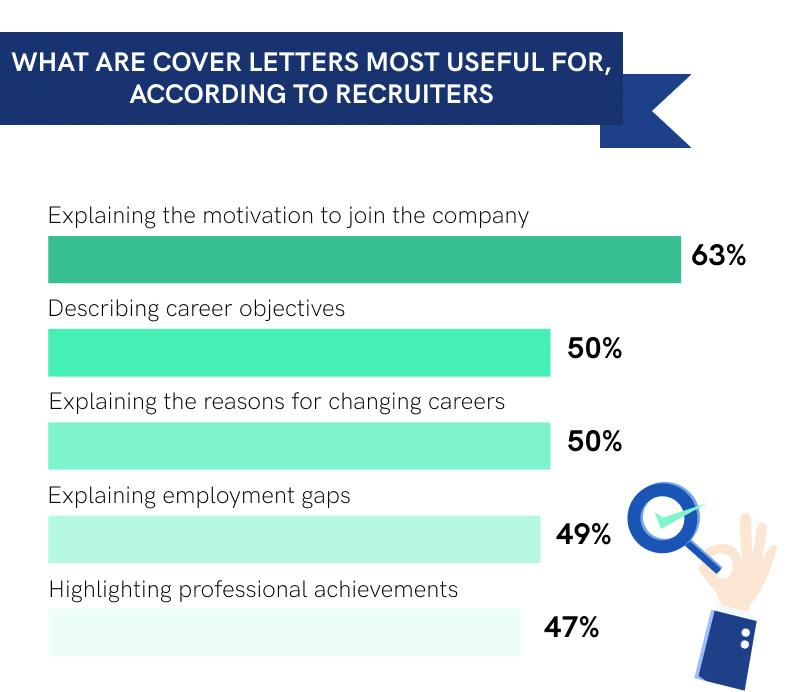share on
There’s no denying that writing a cover letter takes time and effort. However, in today’s war for talent, it’s imperative to make applying for jobs as effortless as possible. So, are cover letters really necessary?
According to a recent survey by ResumeLab, cover letters are still an important component of the decision-making process among 83% of hiring managers, recruiters, and HR staff.
Further, 83% of respondents claimed that they would interview a candidate with a great cover letter, even if their resume isn’t up to par.
The survey further revealed that even when not required, hiring decision-makers usually prefer cover letters. Even if a cover letter is optional, 77% of recruiters will give preference to candidates who did send a cover letter.
Additionally:
- 72% of recruiters still expect cover letters even if the job ad states they’re optional.
- 74% of recruitment decision-makers prefer to receive job applications which include cover letters apart from resumes.
- For jobs with a direct application process (for instance through an email), a cover letter is required 64% of the time.
- For vacancies advertised via automated online tools (e.g. job boards such as Indeed, or internal career sites), 61% recruiters require cover letters.
In other words, cover letters are pretty much mandatory in 2020.
So, why do HR and recruitment folks find cover letters so useful? Among the reasons cited by respondents, the top three were: ‘explaining the motivation to join the company’, ‘describing career objectives’, and ‘explaining the reasons for changing careers’.
Interestingly, only 36% of recruitment professionals consider cover letters useful for displaying that mythical ‘cultural fit’.

Other key findings from the survey included:
- 77% of hiring decision-makers said they would read the cover letter even if it wasn’t required.
- When a cover letter is required, 74% of recruiters claimed they read it.
- 49% of recruiters preferred when the cover letter is written in the email body.
- 42% preferred to get a cover letter attached as a separate document.
- 36% of hiring decision-makers read a candidate’s cover letter before they review the resume.
- 37% would read the resume first.
- 27% would start with either document and would not follow any particular order.
- If a cover letter optional in the job ad, only 35% of candidates attached a cover letter to their application.
- If a cover letter required, only 38% of candidates submitted a cover letter.
- No matter what the job ad says, six out of 10 candidates do not write a cover letter.
Methodology
This survey was run by OnePoll on behalf of ResumeLab. In it, 200 recruiters, HR specialists and hiring managers were surveyed. The data rely on online self-reports after eligibility screening. Each participant responded without any researcher administration or interference.
Potential issues with self-reported data include but are not limited to exaggeration, selective memory, and attribution errors. Some questions and responses have been rephrased for clarity and ease of understanding for readers.
In some cases, the percentages presented may not add up to 100%: this is either due to rounding or due to responses of “neither/other/don’t know” not being presented.
Infographic / ResumeLabs
Lead image / iStock
share on
Follow us on Telegram and on Instagram @humanresourcesonline for all the latest HR and manpower news from around the region!
Related topics


